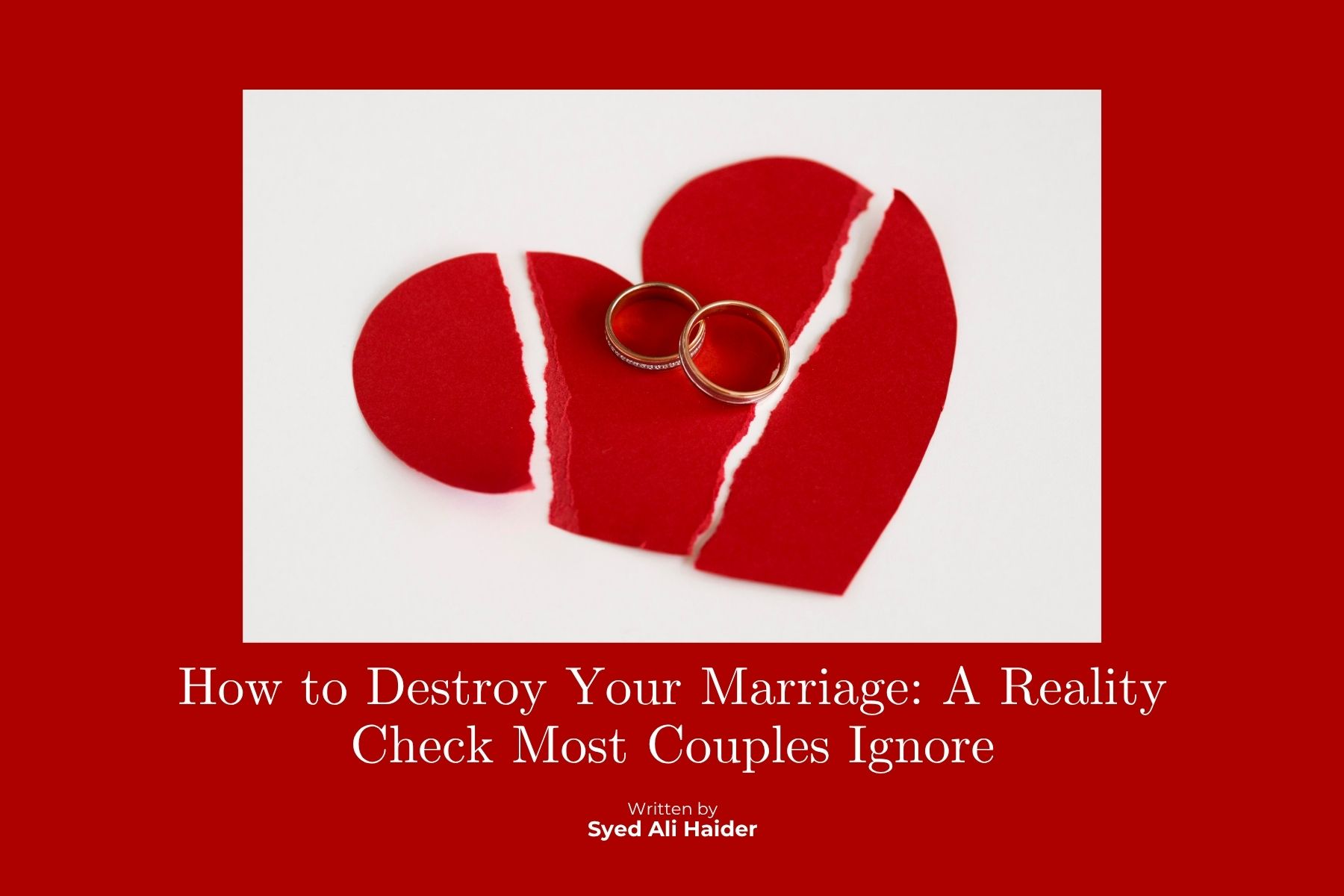How to Destroy Your Marriage: A Reality Check Most Couples Ignore
Marriage is rarely ideal. It’s not supposed to be perfect — but that doesn’t mean it should be toxic either. Over the years, in my work with couples, I’ve noticed one particular factor that consistently contributes to the breakdown of relationships. While many variables are involved in marital conflict, this one factor is subtle, often overlooked, and incredibly destructive.
The Most Overlooked Danger: Confirmation Bias
One of the biggest silent killers of a marriage is confirmation bias.
What is Confirmation Bias?
Confirmation bias is the psychological tendency to seek out and interpret information in a way that confirms your existing beliefs. When applied to marriage, it becomes a trap.
Imagine this: Your partner is going through a difficult time emotionally. They become distant, irritable, or quiet. Instead of addressing the root cause, a voice inside you says:
“My partner is pushing me away… they don’t love me anymore… they’re resisting me.”
You form a core belief that your spouse is the problem — and now your mind subconsciously begins to gather “evidence” to prove this.
How We Feed the Bias
You walk into the house after a long day. Your wife is stressed, tired, maybe even short with you. Instead of seeing her humanity or emotional fatigue, you tell yourself:
“See? She doesn’t even smile when I come home. She fights with me. This proves she doesn’t care.”
Then you talk to your friends or family — and someone casually agrees:
“Women are like that, man. They’re always nagging.”
Now you’ve got supporting arguments. Your mind relaxes. You feel validated — not realizing that you’re feeding the exact thoughts that are destroying your relationship.
What You Focus On, Grows
When you constantly focus on the flaws of your partner, you’re actually manifesting a more negative relationship. If you’ve already made up your mind that your spouse is cold or distant, you will see every action through that lens. And it becomes a cycle that ruins connection, love, and trust.
Every Human Has Flaws — Including You
We all have weaknesses. Your partner has them, and so do you. The difference lies in how we address them.
If you notice something in your partner that bothers you — a behavior, a habit, or even emotional distance — your first step should be communication.
But here’s the hard truth:
They might not listen the first time. Or the second.
So what do you do?
You change your language.
You change your approach.
You ask yourself: “Am I communicating this in a way that triggers their defense mechanism?”
Maybe your way of talking is the problem, not the issue itself.
Don’t Beat Drums Around the World
One of the worst mistakes you can make is to start broadcasting your marital issues to friends, family, or coworkers.
This not only creates shame for your partner, but also ruins your chances of healing the relationship. If you’re going to seek advice, make sure you’re going to someone who is neutral, not someone who will just validate your pain and feed your bias.
When to Seek Help? Right Now.
If you feel like you’re stuck in a loop where every complaint ends in more arguments or emotional distance — you don’t have to wait for a full-blown crisis.
This is where relationship counselling comes in.
A neutral third party can help both of you understand what’s really going on beneath the surface. You’re not weak for needing help — you’re wise for wanting to save what matters.
Final Thoughts
A healthy marriage requires work, patience, and most importantly — self-awareness. Before blaming your partner, pause and reflect:
- Am I viewing them through the lens of my own unresolved emotions?
- Have I tried changing my language or approach?
- Am I seeking advice from people who truly want to help, or just those who echo my pain?
If you truly care about your marriage, don’t wait for it to fall apart. Work on the small things now — or they’ll become the big reasons later.
My name is Ali Haider, and I help couples reconnect, rebuild, and recover from the emotional mess that life throws their way. Seeking help doesn’t make you weak — it means you still believe there’s something worth saving.




